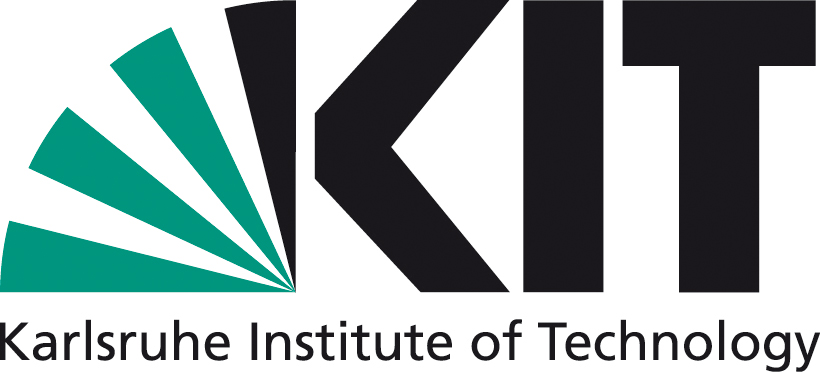Democratization of technology assessment?
The problem of defining the relationship between public sphere and scientific expertise
DOI:
https://doi.org/10.14512/tatup.29.3.18Keywords:
democratization, public sphere, problem-oriented research, critiqueAbstract
Technology assessment (TA) is becoming more open to democratic public consultation. This poses a complex problem of self-positioning for TA. We argue that in order for TA to be able to carry out this public self-positioning transparently, a democratic theoretical framework is required which allows clarifying the relationship to the public. Such a frame of reference can be formed from the three dimensions of political ability (“politisches Können”), political willing (“politisches Wollen”), and political obligation (“politisches Sollen”). Based on an analysis along three typical forms – the public as addressee of TA knowledge, as source of TA knowledge, and as interaction partner of TA – we demonstrate how this framework can help TA develop a critical and reflexive relationship to the public and thus productively solve the self-positioning problem.References
Beardsworth, Richard; Behr, Hartmut; Sigwart, Hans-Jörg (2020): Anti-democratic distortions and the future of liberal democracy. Negotiating the national-international tension. Unpublished working paper in progress.
Beetz, Michael (2005): Die Rationalität der Öffentlichkeit. Konstanz: UVK.
Bogner, Alexander (2010): Partizipation als Laborexperiment. Paradoxien der Laiendeliberation in Technikfragen. In: Zeitschrift für Soziologie 39 (2), S. 87–105.
Böschen, Stefan; Kastenhofer, Karen; Rust, Ina; Soentgen, Jens; Wehling, Peter (2010): Scientific nonknowledge and its political dynamics. The cases of agri-biotechnology and mobile phoning. In: Science, Technology & Human Values 35 (6), S. 783–811.
Bucchi, Massimiano; Neresini, Federico (2008): Science and public participation. In: Edward Hackett, Olga Amsterdamska, Michael Lynch and Judy Wajcman (Hg.): The handbook of science and technology studies. Cambridge (Massachusetts): MIT-Press, S. 449–472.
Czada, Roland (2010): Good Governance als Leitkkonzept für Regierungshandeln. Grundlagen, Anwendungen, Kritik. In: Arthur Benz und Nicolai Dose (Hg.): Governance – Regieren in komplexen Regelsystemen. Eine Einführung. Wiesbaden: VS Verlag für Sozialwissenschaften, S. 201–224.
Delvenne, Pierre; Grunwald, Armin; Nierling, Linda; Torgersen, Helge (2019): Interview. Balancing engagement and neutrality in technology assessment. In: TATuP – Zeitschrift für Technikfolgenabschätzung in Theorie und Praxis 28 (1), S. 71–74.
Delvenne, Pierre; Parotte, Celine (2019): Breaking the myth of neutrality. Technology assessment has politics, technology assessment as politics. In: Technological Forecasting and Social Change 139, S. 64–72.
Delvenne, Pierre; Fallon, Christine; Brunet, Sébastien (2011): Parliamentary technology assessment institutions as indications of reflexive modernization. In: Technology in Society 33 (1–2), S. 36–43.
Dewey, John (1996): Die Öffentlichkeit und ihre Probleme. Darmstadt: Wissenschaftliche Buchgesellschaft.
European Commission (2018): A multi-dimensional approach to disinformation. Report of the independent high level group on fake news and online disinformation. Brussels: Directorate-General for Communication Networks, Content and Technology.
Gloede, Fritz (1992): Rationalisierung oder reflexive Verwissenschaftlichung? Zur Debatte um die Funktionen von Technikfolgen-Abschätzung für Technikpolitik. In: Thomas Petermann (Hg.): Technikfolgen-Abschätzung als Technikforschung und Politikberatung. Frankfurt: Campus, S. 299–328.
Grunwald, Armin (2017): Technik und Politikberatung. Philosophische Perspektiven. Frankfurt am Main: Suhrkamp.
Habermas, Jürgen (1992): Faktizität und Geltung. Beiträge zur Diskurstheorie des Rechts und des demokratischen Rechtsstaats. Frankfurt am Main: Suhrkamp.
Habermas, Jürgen (2002): Die Zukunft der menschlichen Natur. Auf dem Weg zu einer liberalen Eugenik. Frankfurt am Main: Suhrkamp.
Hagen, Lutz; Wieland, Mareike; In der Au, Anne-Marie (2017): Algorithmischer Strukturwandel der Öffentlichkeit. In: MedienJournal 41 (2), S. 127–43.
Hennen, Leonhard (2012): Why do we still need participatory Technology Assessment? In: Poiesis & Praxis 9 (1–2), S. 27–41.
Jasanoff, Sheila (2003): Technologies of humility. Citizen participation in governing science. In: Minerva 41 (3), S. 233–244.
Kalyvas, Andreas (2005): Popular sovereignty, democracy, and the constituent power. In: Constellations 12 (2), S. 223–244.
Laclau, Ernesto; Mouffe, Chantal (1991): Hegemonie und radikale Demokratie. Zur Dekonstruktion des Marxismus, Wien: Passagen.
Leggewie, Claus (Hg.) (2007): Von der Politik- zur Gesellschaftsberatung. Frankfurt am Main: Campus.
Mayntz, Renate; Scharpf, Fritz (Hg.) (1995): Gesellschaftliche Selbstregelung und politische Steuerung, Frankfurt am Main: Campus.
Nullmeier, Frank (1993): Wissen und Policy-Forschung. Wissenspolitologie und rhetorisch-dialektisches Handlungsmodell. In: Adrienne Héritier (Hg.): Policy-Analyse. Kritik und Neuorientierung. Opladen: Westdeutscher Verlag, S. 175–196.
Oreskes, Naomi; Conway, Erik (2010): Merchants of doubt. New York: Bloomsbury Press.
Petermann, Thomas; Grunwald, Armin (Hg.) (2005): Technikfolgen-Abschätzung für den Deutschen Bundestag. Das TAB – Erfahrungen und Perspektiven wissenschaftlicher Politikberatung. Berlin: edition sigma.
Proctor, Robert; Schiebinger, Londa (Hg.) (2008): Agnotology. The making and unmaking of ignorance. Stanford: Stanford University Press.
Rawls, John (2002): Das Recht der Völker. Berlin: Walter de Gruyter.
Rawls, John (2003): Politischer Liberalismus. Frankfurt am Main: Suhrkamp.
Rowe, Gene; Frewer, Lynn (2005): A typology of public engagement mechanisms. In: Science, Technology & Human Values 30 (2), S. 251–290.
Schuppert, Gunnar (2008): Governance durch Wissen. Überlegungen zum Verhältnis von Macht und Wissen aus governancetheoretischer Perspektive. In: Gunnar Schuppert und Andreas Voßkuhle (Hg.): Governance von und durch Wissen. Baden-Baden: Nomos, S. 259–304.
Wehling, Peter; Viehöver, Willy (2013): ‚Uneingeladene’ Partizipation der Zivilgesellschaft. Ein kreatives Element der Governance von Wissenschaft. In: Edgar Grande, Dorothea Jansen, Otfried Jarren, Arie Rip, Uwe Schimank und Peter Weingart (Hg.): Neue Governance der Wissenschaft. Bielefeld: transcript, S. 213–234.
Wenman, Mark (2013): Agonistic democracy. Constituent power in the era of globalization. Cambridge: Cambridge University Press.
Weydner-Volkmann, Sebastian (2019): Ethische Technikfolgenabschätzung als Kartographie situativer Wertungskonflikte. In: TATuP – Zeitschrift für Technikfolgenabschätzung in Theorie und Praxis 28 (1), S. 39–44.
White, Jonathan; Ypi, Lea (2017): The politics of peoplehood. In: Political Theory 45 (4), S. 439–465.
Downloads
Published
How to Cite
Issue
Section
License
Copyright (c) 2020 Stefan Böschen and Hans-Jörg Sigwart

This work is licensed under a Creative Commons Attribution 4.0 International License.








